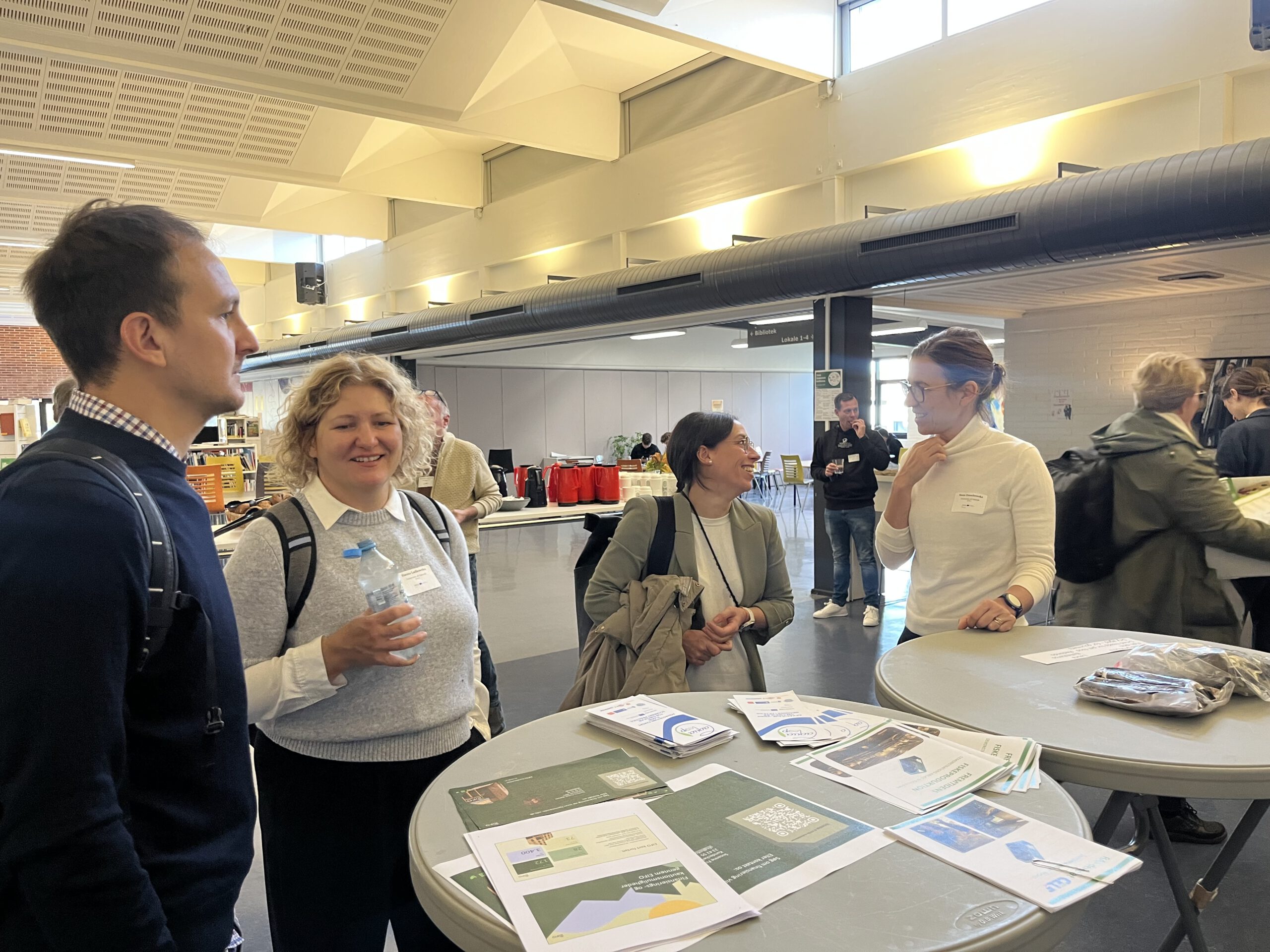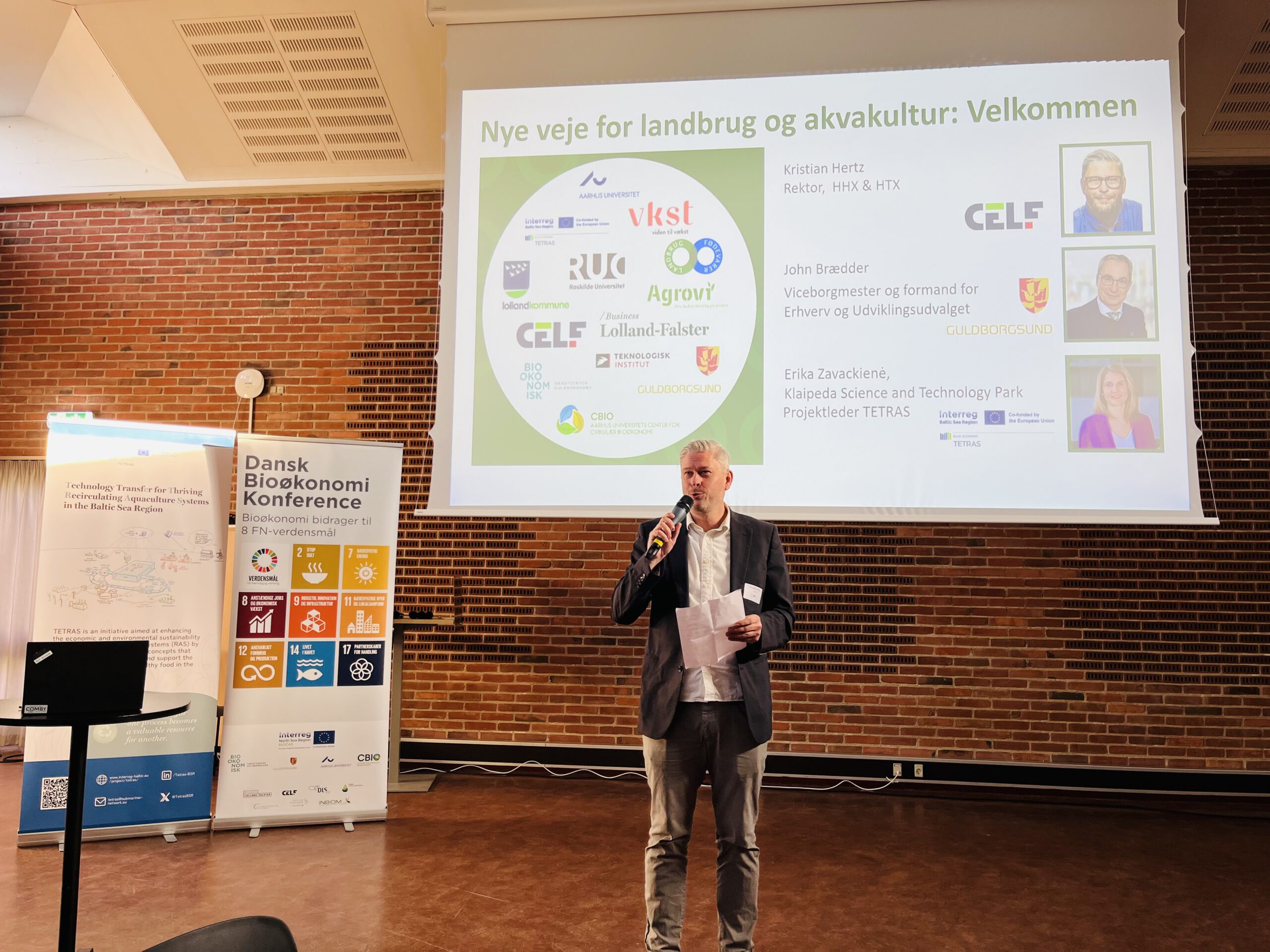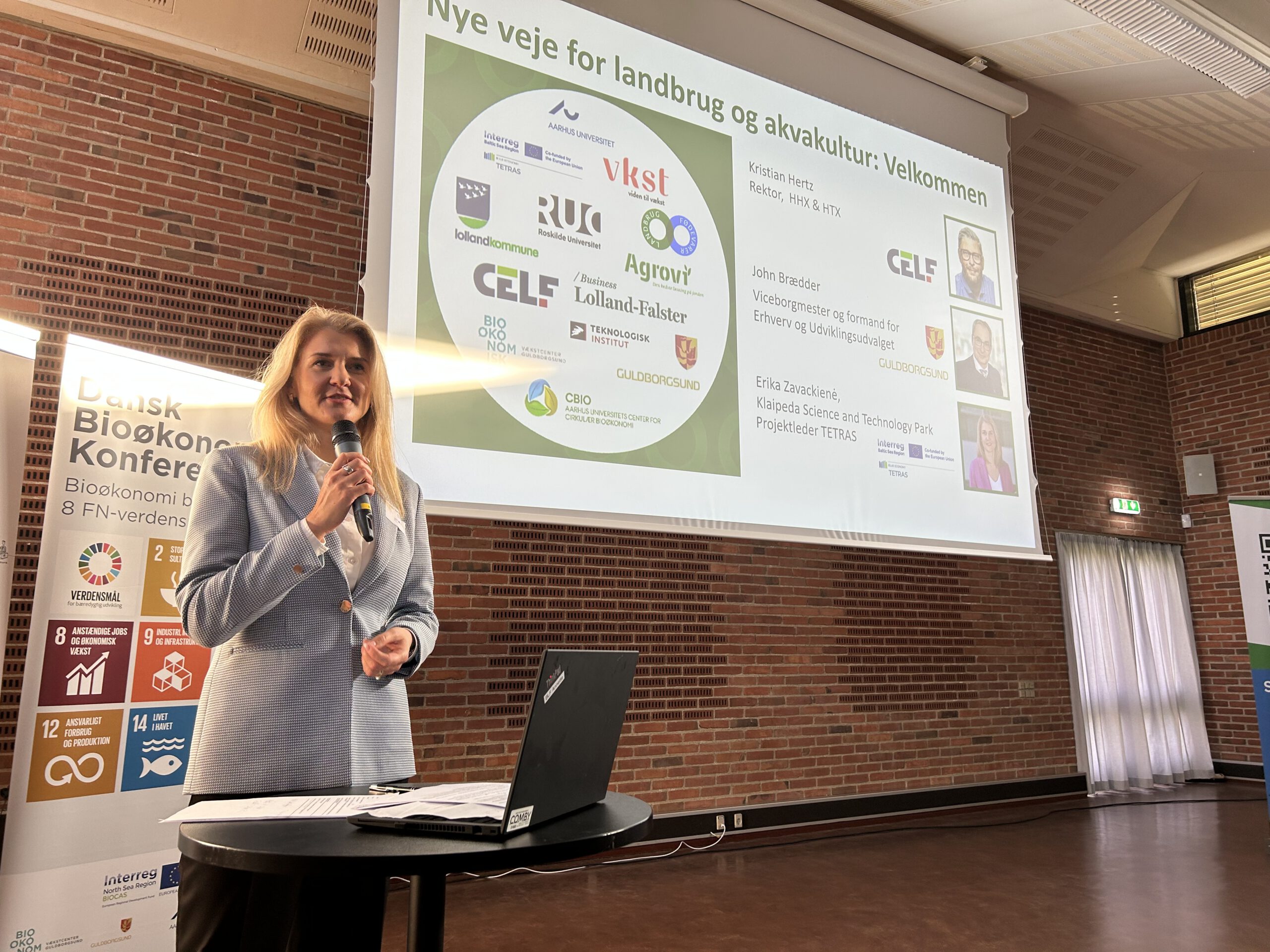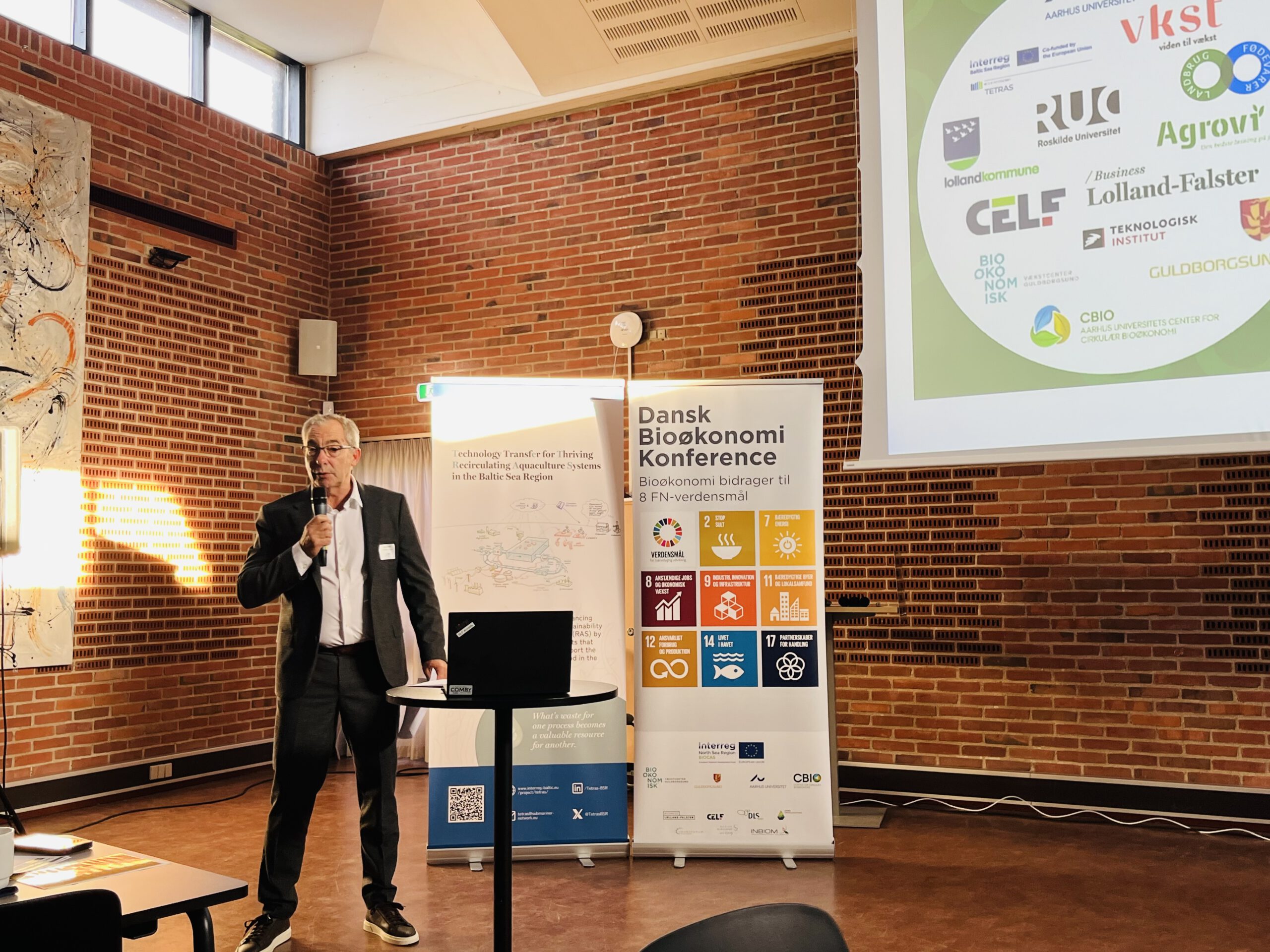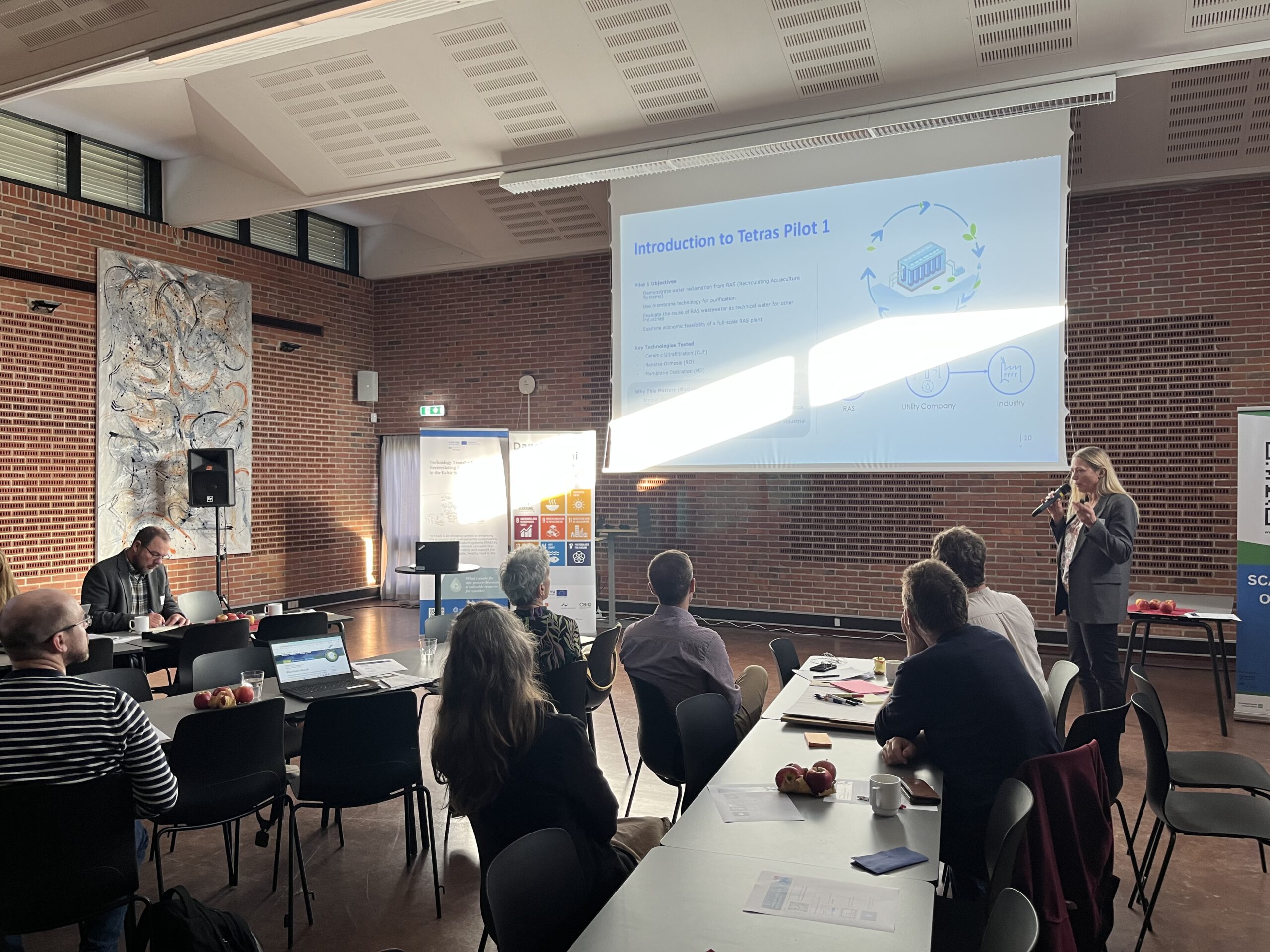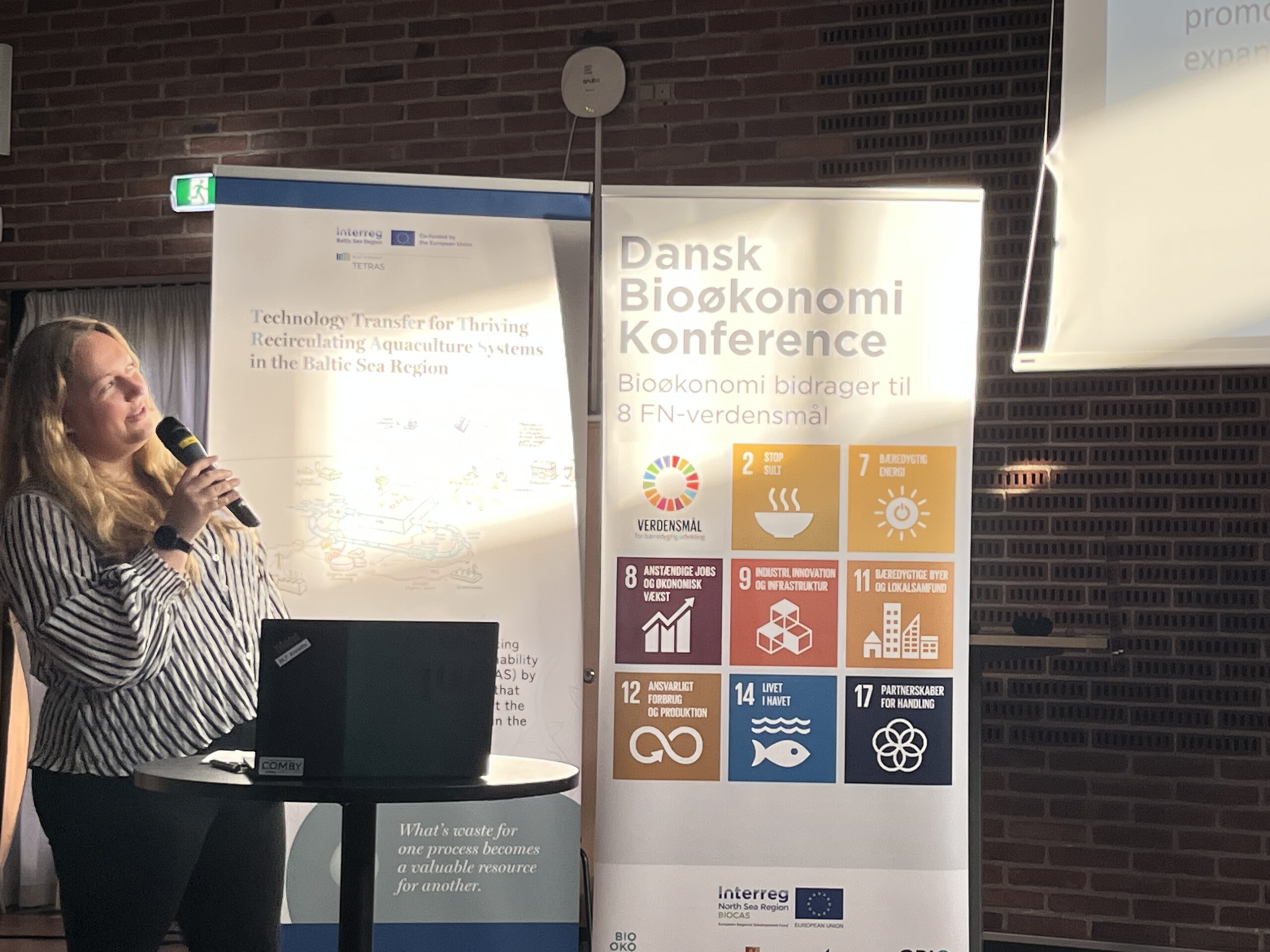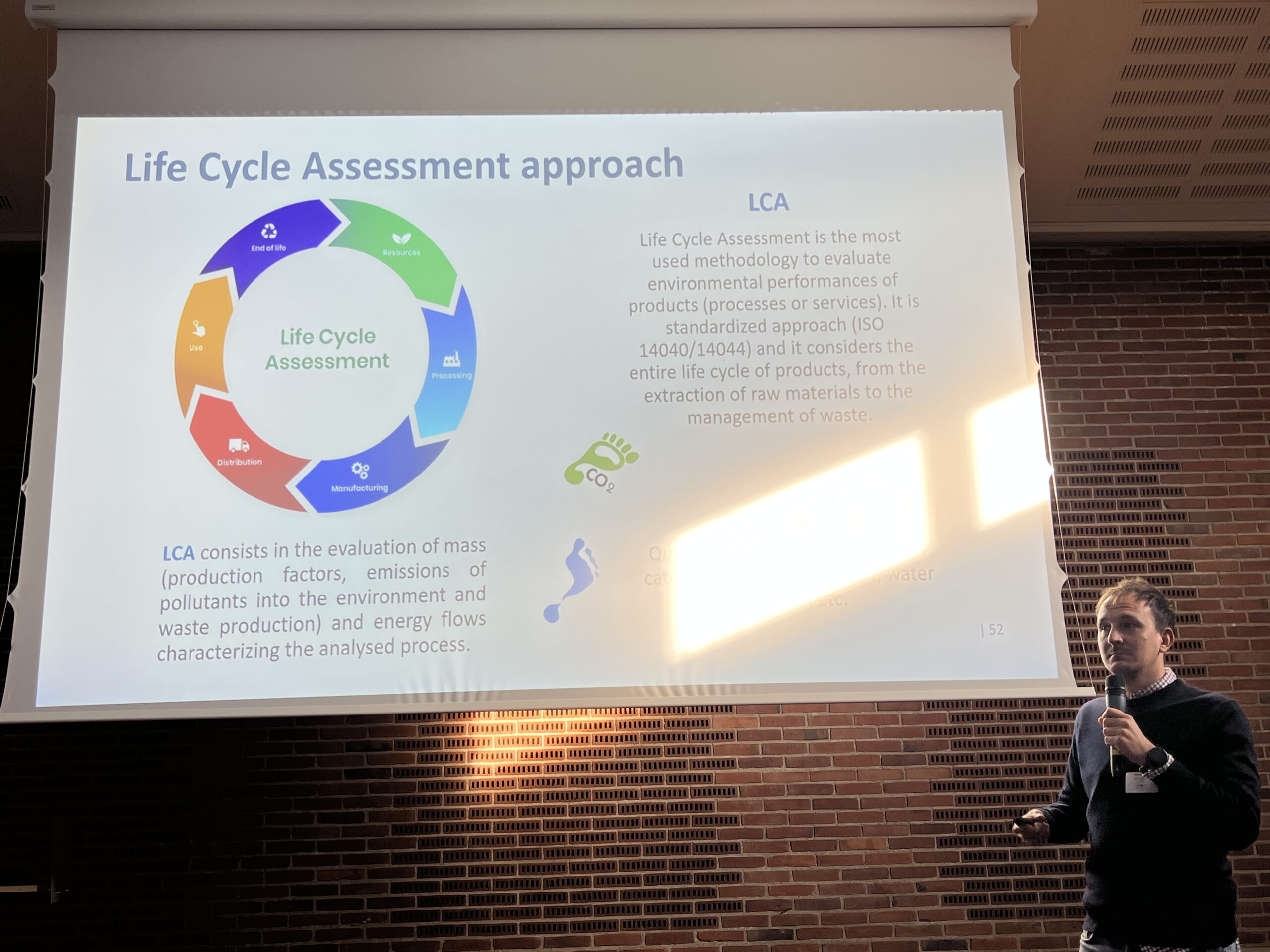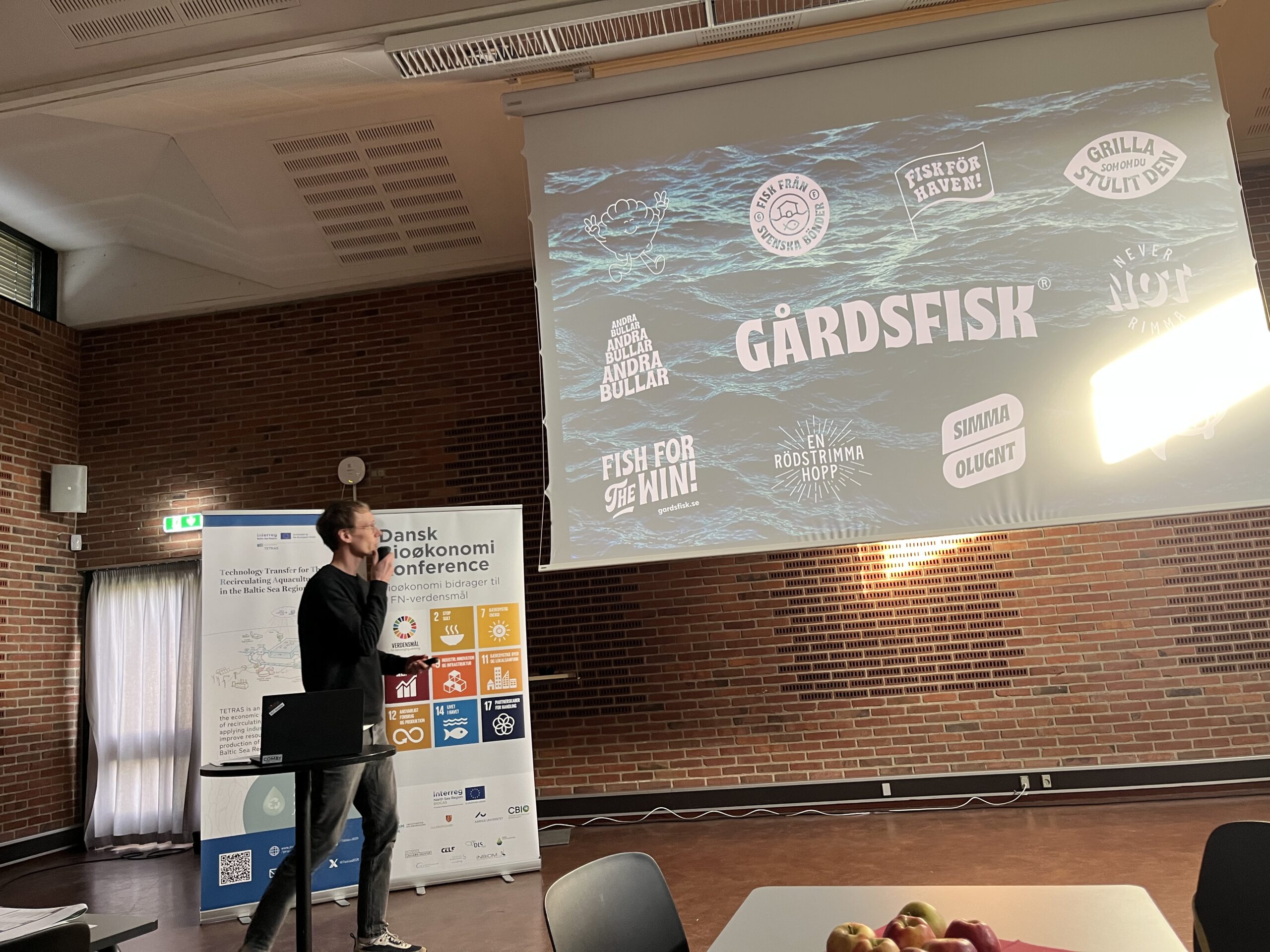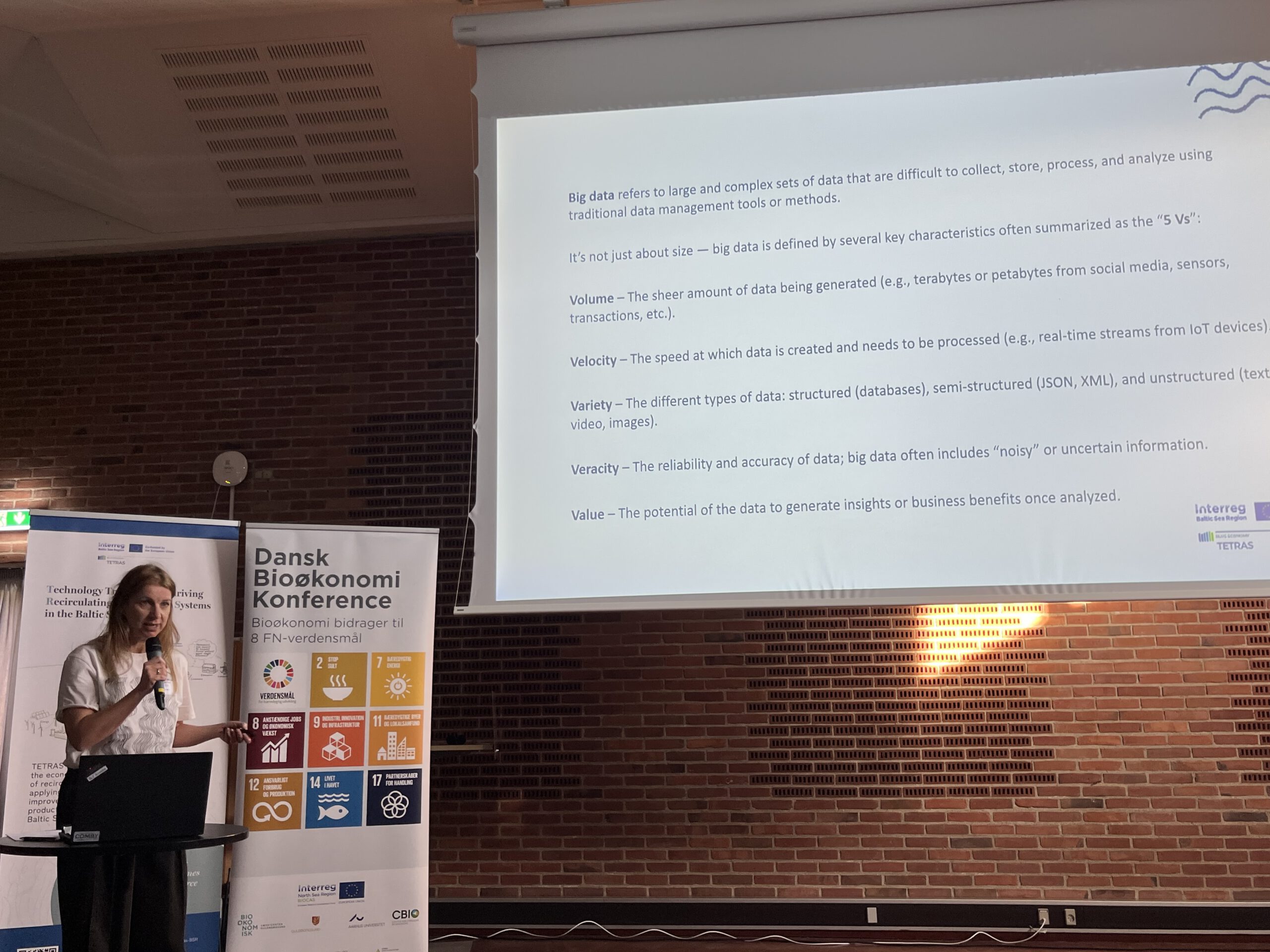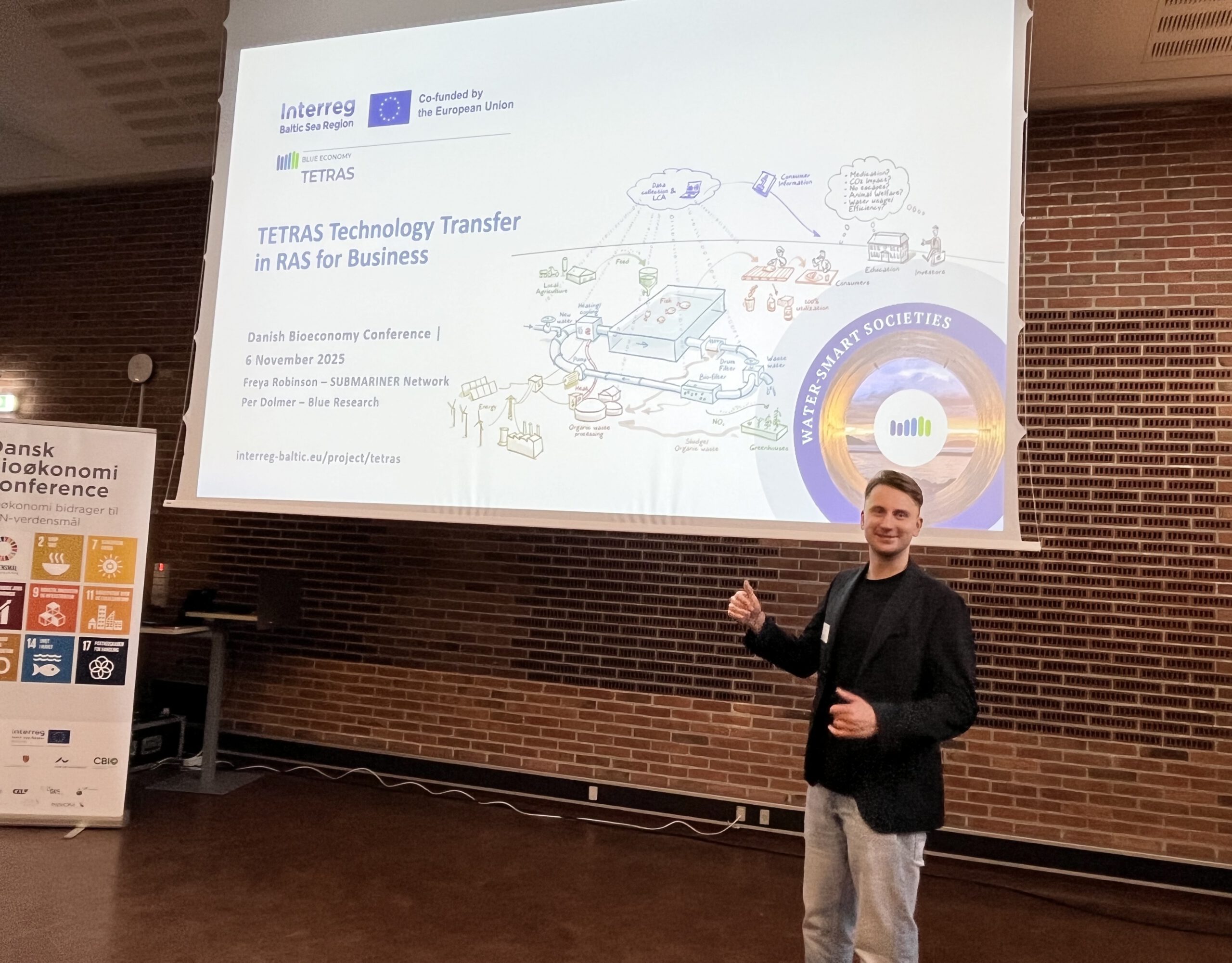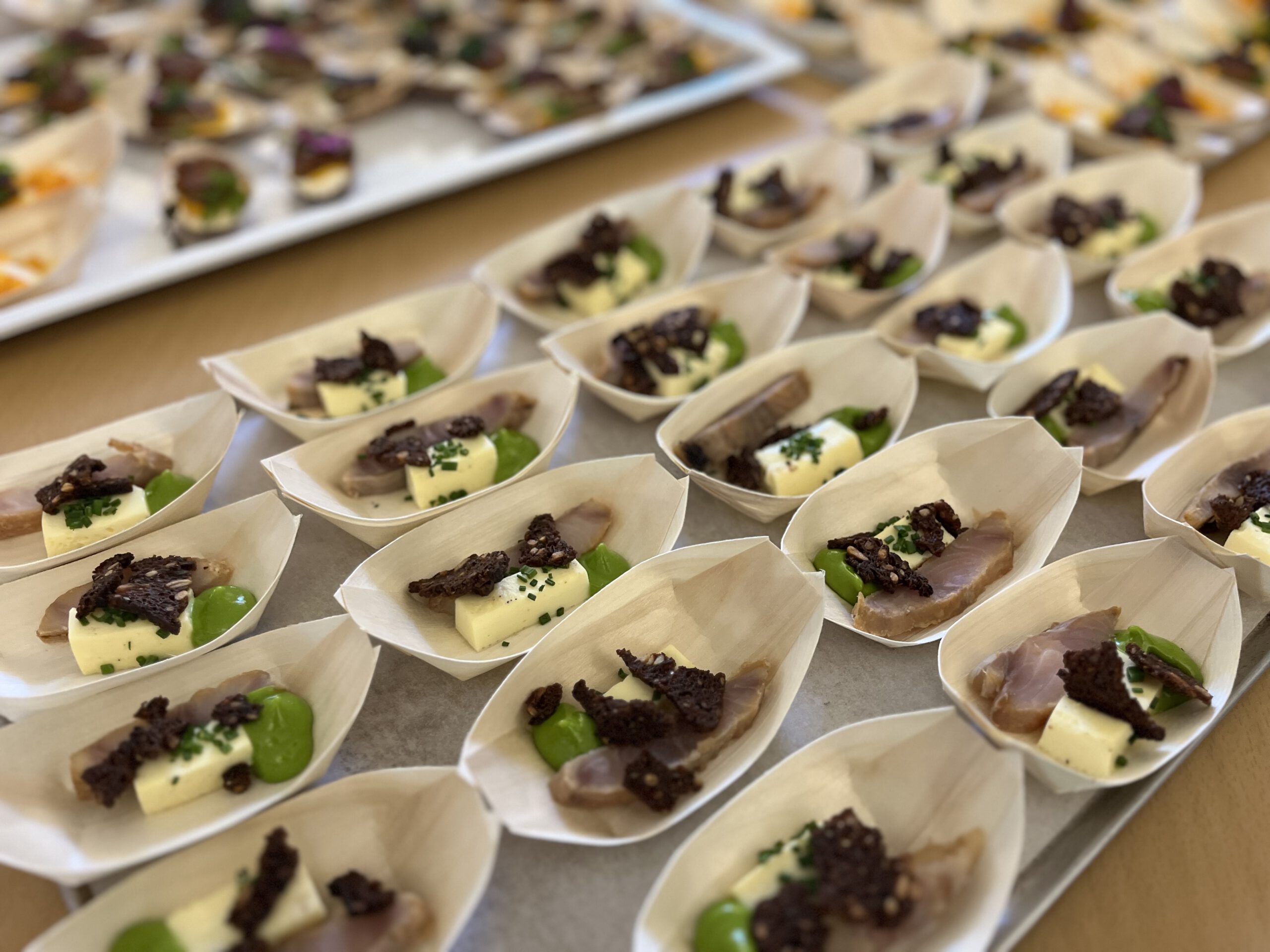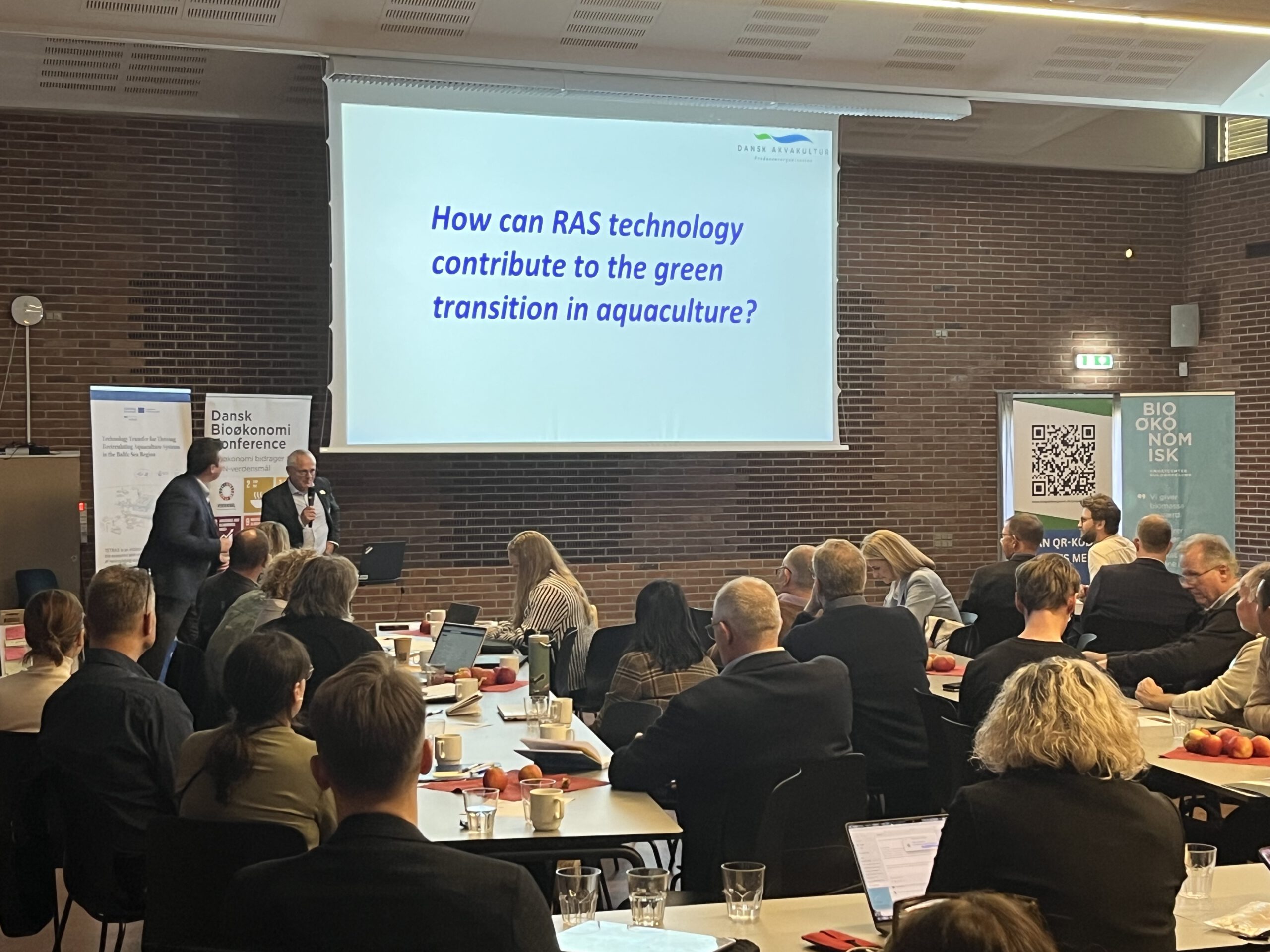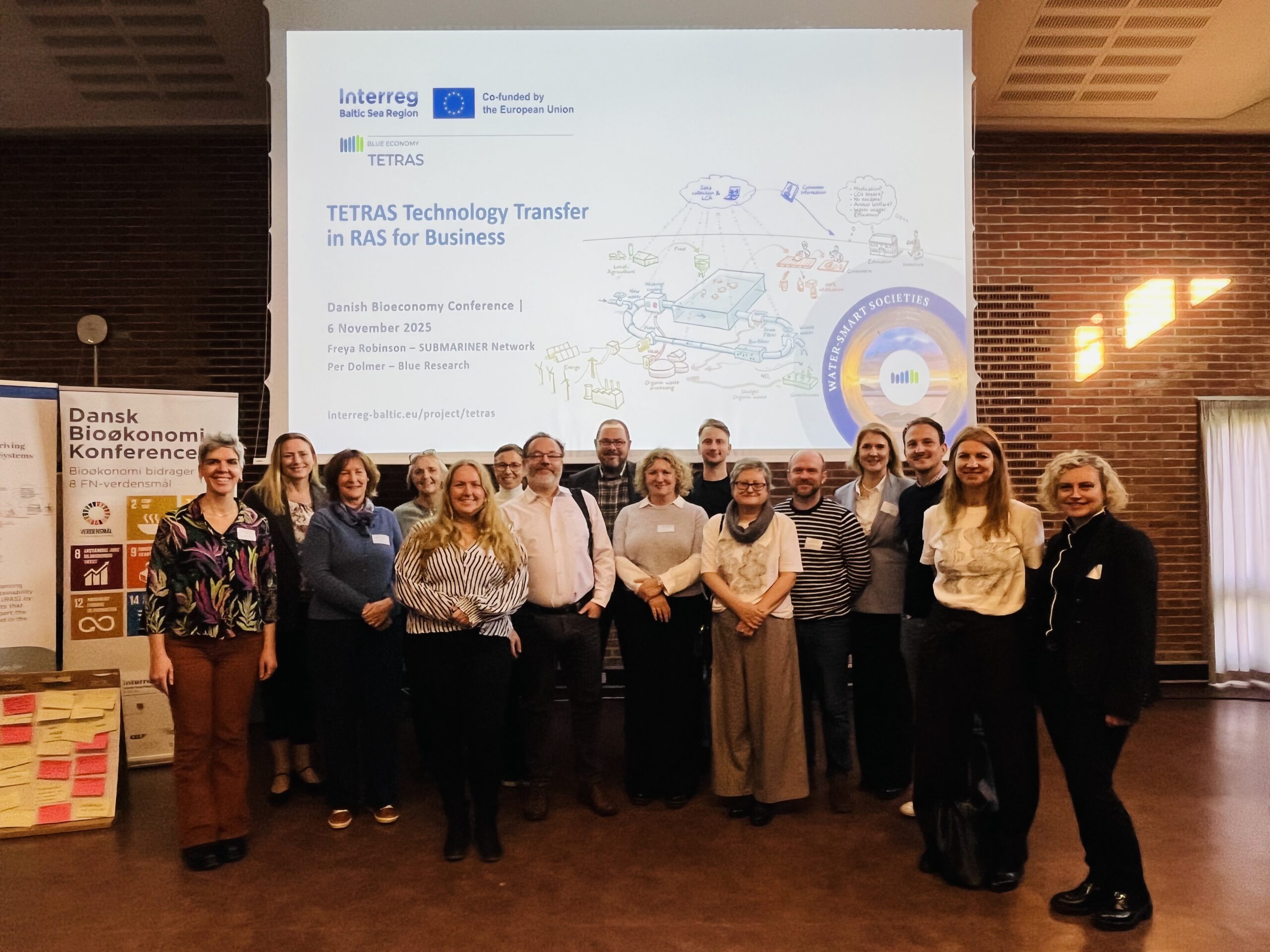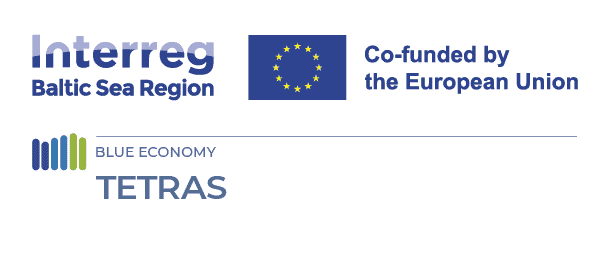
TETRAS x Danish Bioeconomy Conference 2025: Advancing New Pathways for Farming and Aquaculture
25 November 2025
On 6 November 2025, partners, policymakers, industry leaders, and researchers gathered in Nykøbing Falster for the Danish Bioeconomy Conference x TETRAS Final Event — a day dedicated to exploring how rural and coastal regions can drive the green transition across farming, industry, and aquaculture.
The event opened with a shared welcome from Guldborgsund Kommune, CELF, and the TETRAS project, followed by an introduction to the broader conference theme: unlocking the bioeconomy potential of rural Denmark. TETRAS Partner Freya Robinson then set the stage with an overview of the project’s four pilots, highlighting how Recirculating Aquaculture Systems (RAS) and industrial symbiosis can enable more circular, resource-efficient blue food production across the Baltic Sea Region.
Participants were introduced to three thematic conference tracks, including Track 3: RAS Technology and Aquaculture Innovation, where the TETRAS partners presented insights from three years of applied research and cross-sector collaboration. This session explored how technical and geothermal water can be used in aquaculture, the role of RAS in vocational training and skills development, and what sustainability assessments such as LCAs, KPIs, and ESG can tell us about scaling different production models. Speakers also shared practical examples of industrial symbiosis — from water treatment and membrane filtration to partnerships between energy providers and aquaculture companies. The discussions highlighted key opportunities, such as reducing environmental impacts through water reuse and digital monitoring, as well as challenges like consumer acceptance of new species, workforce recruitment, and balancing nutrient loads in symbiotic systems with agricultural partners.
Later in the day, participants reconvened for the plenary keynote sessions. Tavs Nyord (SEGES) explored how surviving parts of Danish farming can contribute to the green transition, Trine de Fine Skibsted (Dansk Erhverv) examined how businesses can capitalise on green potential commercially, and Brian Thomsen, Director of the Danish Aquaculture Producers Organisation, delivered a forward-looking presentation on how RAS technology can support climate-friendly blue production. A further keynote by Per Meyer and Andreas Sigurd Bennike (Roskilde University), highlighted the role of digital twins in risk reduction, optimisation, and scaling of aquaculture operations, demonstrating how advanced modelling and simulation can accelerate innovation and sustainability in the sector. Together, the keynotes showcased the wider innovation pathways and cross-sector strategies needed to advance a sustainable bioeconomy.
The event closed with a joint panel discussion and networking session — a fitting conclusion to a day focused on collaboration, innovation, and the future of integrated land- and water-based production systems.
The presentations from the event are available on the Bioguldborgsund website
As TETRAS enters its final stage, the project’s outputs will soon be made available. A comprehensive Portfolio of Solutions — including business cases, regulatory guidance, communication materials, and technical and policy recommendations — will be published in December 2025.
Stay tuned for updates and access to the full results.
